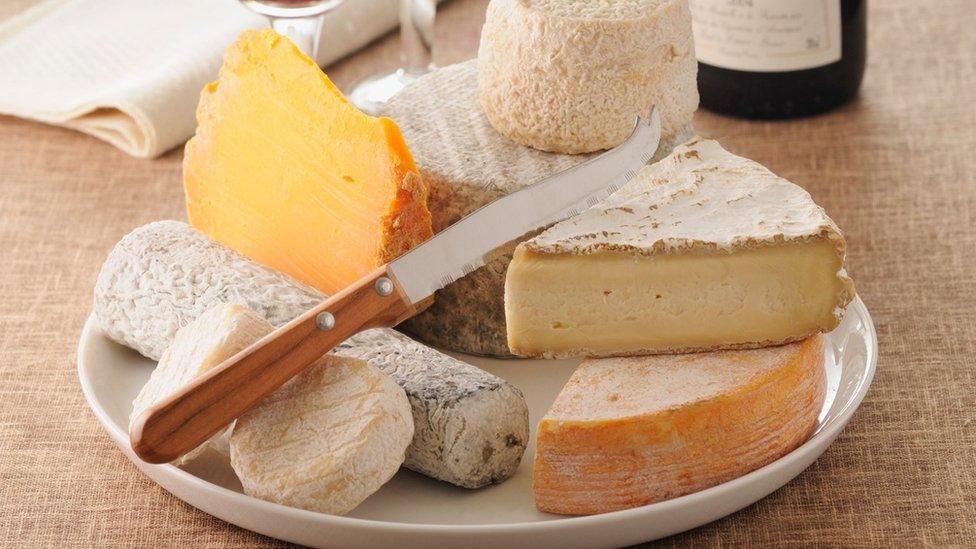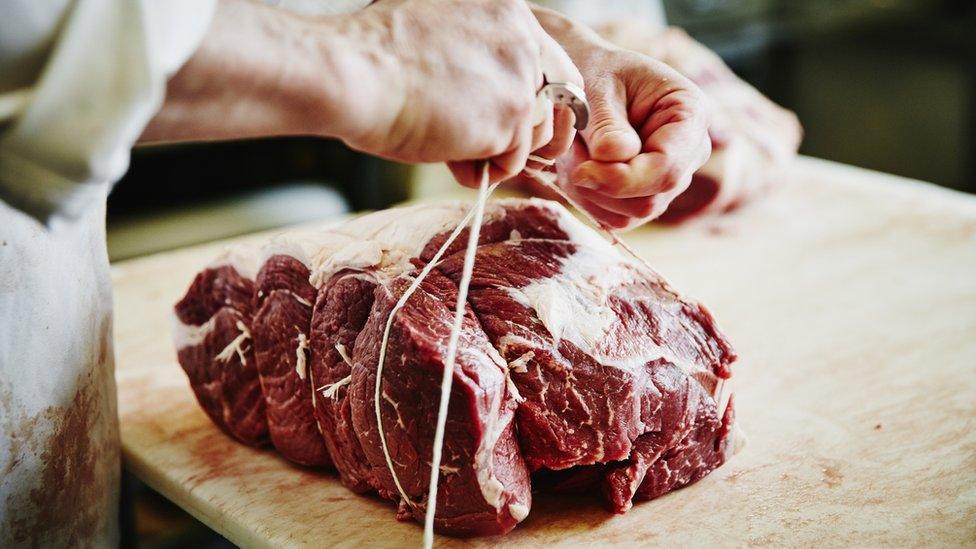Food price fears as Brexit import charges revealed
- Published
- comments

The government has revealed how much companies will have to pay to import foods from the EU due to Brexit.
Small imports of products such as fish, salami, sausage, cheese and yoghurt will be subject to fees of up to £145 from 30 April, according to the Department for Environment, Food and Rural Affairs, external (DEFRA).
The Cold Chain Federation said the new charges would hit food prices.
The government said the fees would pay for "world-class border facilities".
The fee, known as the "common user charge", will apply to animal products, plants and plant products entering the UK from the EU through the Port of Dover and the Eurotunnel at Folkestone.
It will be charged per type of good imported - the "commodity line" - and capped at £145 for mixed consignments. Individual products will face charges of up to £29. It will apply to goods deemed low, medium and high risk.
The Cold Chain Federation's chief executive Phil Pluck said the fee would have to be passed on to "either the EU importer, the smaller UK retailer, or the UK consumer".
"Ultimately, this will increase business costs and food prices and potentially lower choices for the shopper," he said.
He added that the government had "announced the charges at the last minute, leaving affected businesses little time to revise their commercial arrangements".
The fee has been introduced to pay for border inspections and fund new facilities in Kent to protect biosecurity - preventing the import of plant and animal disease.
But the Horticultural Trades Association (HTA) said the policy felt like it was "constructed on the back of an envelope at best" and would "undoubtedly increase costs, potentially reduce consumer choice, and increase the likelihood of empty shelves".
"Our sector typically has multiple commodity lines per consignment, meaning, in reality, businesses in our sector will be paying the £145 maximum charge," said James Barnes, the HTA chairman.
Horticultural consignments can include plants, seeds, bulbs and cut flowers, he said.
The government has delayed implementing the changes five times, partly to give business time to prepare and to reduce disruption to supply chains.
The new border checks will be phased in gradually over the next 12 months but physical checks have been flagged as starting on 30 April for some time. However, the cost associated with those checks had not been revealed until now.
Prior to Brexit, trade between the EU and the UK was free flowing and frictionless.
But following the UK's departure from the trading bloc, this changed as a result of the relatively distant approach to EU relations adopted by the UK government.
Labour said British shoppers and businesses were "rightly worried about prices being driven up again" and that it had warned about the "potential for chaos" from new border checks.
Shadow minister Nick Thomas-Symonds said: "With less than a month before their introduction, we now know what the costs will be.
"Labour has a plan to reduce costly bureaucracy, through seeking to negotiate a veterinary agreement with the EU to massively reduce the need for checks, helping make food cheaper and our businesses more competitive."
In a statement the government said the flat-rate charge was at the "bottom end of the range which we consulted with industry on".
It said the charge was designed to "recover the costs of operating our world-class border facilities where essential biosecurity checks will protect our food supply, farmers and environment against costly disease outbreaks entering the UK through the short straits".
A spokesperson said: "The charges follow extensive consultation with industry and a cap has been set specifically to help smaller businesses. We are committed to supporting businesses of all sizes and across all sectors as they adapt to new border checks and maintaining the smooth flow of imported goods."
Related topics
- Published31 January 2024
